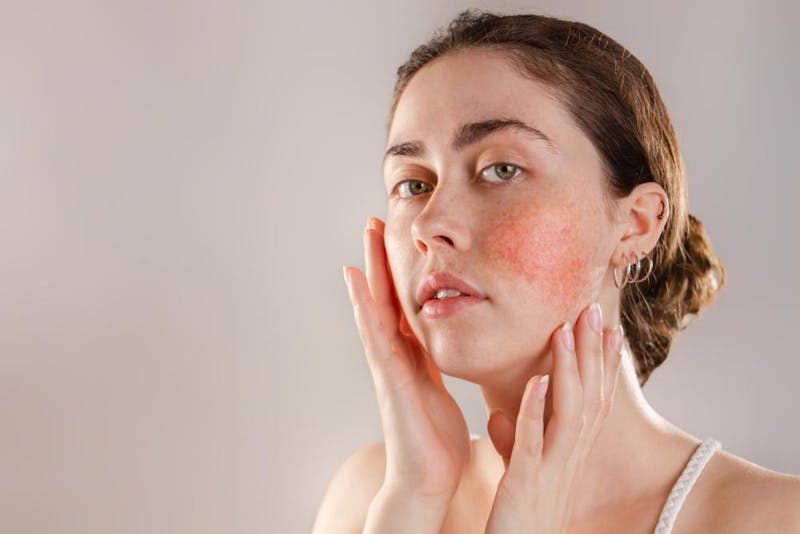
With any chronic condition, you and your provider must partner to manage it well. The same is true for skin conditions, including rosacea, an inflammatory skin condition affecting over 14 million Americans, most of them adults.
Rosacea symptoms are uncomfortable and can make you feel self-conscious; it can make your skin bright red in some areas and cause pustules to form.
There’s another major challenge with this condition: Many things can cause a symptom flare-up, so getting these under control is usually a top priority for those living with rosacea.
Fortunately, Dr. Abdul Hafeez and the providers at the Center for Dermatology in Lawrenceville, Georgia, offer expert treatment to patients with rosacea. Here, they discuss how you can tame those unwanted flare-ups.
What’s rosacea?
Rosacea is an inflammatory skin condition with symptoms that include:
- Redness that shows up more on the nose, cheeks, and forehead
- Pimples filled with pus or fluid
- Skin swelling
- Enlarged blood vessels
- Enlarged pores
- Skin warmth
- Bumpy, thickened skin, especially on the nose
- Eye irritation, redness, and watering
There’s a genetic component to this condition. If you have a family member with rosacea, you’re at higher risk. Women experience rosacea more than men, and you’re more likely to deal with it if you’re fair-skinned and light-eyed.
Say no to dreaded rosacea flare-ups
Rosacea symptoms can come and go with no warning, known as a flare-up. In addition to uncomfortable symptoms, studies show that rosacea is linked to depression and anxiety.
For these reasons, identifying and steering clear of rosacea triggers are goals you and your Center for Dermatology provider want to prioritize.
Since we value thoroughness when we evaluate you and discuss your rosacea symptoms and treatment, having a detailed conversation about your flare-ups and when they happen can help us pinpoint your triggers and formulate a plan to avoid them.
Well-known rosacea triggers include:
- Extreme temperatures
- Harsh wind
- Stress
- Alcohol
- Spicy foods
- Certain prescription medications, such as blood pressure meds
Managing rosacea might include eating milder foods and enjoying a mocktail instead of a cocktail, wearing weather-appropriate clothing, staying indoors when severe conditions are present, and learning to manage stress.
The latter could involve lifestyle changes like eating well, getting enough sleep, exercising, and adopting a mindfulness practice like meditation.
Your Center for Dermatology provider can complement these strategies with advanced treatment, including topical and/or oral medications and skin emollients.
We also offer cosmetic treatments that many patients find successful, like light chemical peels and laser and intense pulsed light therapy (IPL). They’re easily tolerated and require no post-treatment downtime.
We’re eager to help you successfully manage your rosacea so you don’t have to worry about flare-ups and the embarrassment and discomfort that accompany them.
If you need help managing your rosacea, call the Center for Dermatology at 770-682-2500 to schedule an appointment, or book online today.

